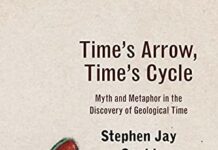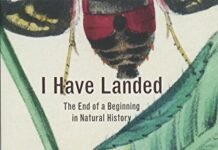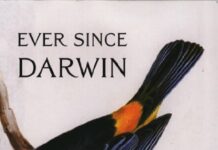
Ebook Info
- Published: 2010
- Number of pages: 482 pages
- Format: EPUB
- File Size: 2.50 MB
- Authors: Stephen Jay Gould
Description
“There is no scientist today whose books I look forward to reading with greater anticipation of enjoyment and enlightenment than Stephen Jay Gould.”—Martin GardnerAmong scientists who write, no one illuminates as well as Stephen Jay Gould doesthe wonderful workings of the natural world. Now in a new volume of collected essays—his sixth since Ever Since Darwin—Gould speaks of the importance of unbroken connections within our own lives and to our ancestralgenerations. Along with way, he opens to us the mysteries of fish tails, frog calls, and other matters, and shows once and for all why we must take notice when a seemingly insignificant creature is threatened, like the land snail Partula from Moorea, whose extinction he movingly relates.
User’s Reviews
Reviews from Amazon users which were colected at the time this book was published on the website:
⭐Stephan Jay Gould was at the top of the heap in the scientific world as an evolutionary biologist and paleontologist. I believe he was one of the few scientists who could actually write for the unwashed masses. Having said that, the book can be extremely complicated and will tax most average brains to stay the course. He is successful at bringing a graduate level course into your livingroom and not putting you to sleep while doing it – well perhaps now and again. Its a good read, but obviously not for everyone and it has been said that all his theories and ideas are not universally accepted in the scientific community, so readers should read it with this in mind. Don’t let the title fool you, its not a bedtime story for children.
⭐The book is a great read!!I am inspired to more…more of this Evolutionary Biology! In my spheres of influence this literary work is an underpinning.
⭐You have to like Stephen Jay Gould’s style to like this book. He had a remarkable intellect, which he is always showcasing in this and many similar collections. His interesting, and ground breaking, ideas are in there but wrapped in a grandiose and slightly sophist style that can get annoying.
⭐good
⭐the best
⭐I am a biologist and enjoy reading Stephen Gould’s essays. He has an entertaining style with an extremely broad scope of knowledge. The world misses his view of life.
⭐He is always making me look at the other view of things and putting things in their proper perspective. Bra On!
⭐Stephen Jay Gould (1941-2002) wrote many other important books, such as
⭐,
⭐,
⭐,
⭐,
⭐,
⭐,
⭐,
⭐,
⭐, etc.He wrote in the Prologue to this 1993 book, “Eight Little Piggies is a book of middle age, and it does contrast, entirely favorably I think (but I am no longer talking to my thirtysomething self) with my youthful
⭐… I like to think of these volumes as building rather than replacing… Yet one theme of transcendent (and growing) importance has been almost absent (and shamefully so) from my writings heretofore. How can any naturalist, any self-professed lover of diversity, ignore the subject of anthropogenic environmental deterioration and massive extinction of species on our present earth?… All these essays first appeared as columns in my monthly series, ‘This View of Life’… many have been dumped and the other improved … The many that I now dislike or regard as substandard are on the scrap heap, so I will stand by all items in the present winnowing and reshaping.”He notes, “We must squarely face an unpleasant historical fact. The conservation movement was born, in large part, as an elitist attempt by wealthy social leaders to preserve wilderness as a domain for patrician leisure and contemplation (against the image, so to speak, of poor immigrants traipsing in hordes through the woods with their Sunday picnic baskets). We have never entirely shaken this legacy of environmentalism as something opposed to immediate human needs, particularly of the impoverished and unfortunate. But the Third World expands and contains most of the pristine habitat that we yearn to preserve.” (Pg. 50)He observes, “I should say right up front that neither of these two positions—adaptation or contingency—really addresses the greatest puzzle of all: the recalcitrant stability of five [digits/fingers] once it evolves. I suspect that this is a question for embryologists and geneticists… Why should five, once attained by whatever route and for whatever reason, be so stubbornly intractable as an upper limit thereafter, so that any lineage, again evolving six or more, must do so by a different path? The inquiry could not be more important, for this issue of digits is a microcosm for the grandest question of all about the history of animal life: Why, following a burst of anatomical exploration in the Cambrian explosion some 550 million years ago, have anatomies so stabilized that not a single new phylum [major body plan] has ever evolved since?” (Pg. 76)He admits, “Our woefully inadequate fossil record is not brimming with intermediary forms… But the origin of mammals represents a happy case of abundant evidence… The cynodont theraspids, our ancestral group among the so-called mammallike reptiles, show numerous trends to reduction and loosening of both quadrate and articular bones in the old reptilian jaw joint… Many cynodonts develop a second articulation between the squamosal and a postdentary element of the lower jaw called the surangular. (This joint is not the later mammalian dentary-squamosal link, but its formation illustrates a multiple evolution of the intermediacy proclaimed impossible by creationists.)” (Pg. 106)He points out, “Darwin’s commitment to gradualism… led him to make at least two prominent, and outstandingly wrong, conjectures: (1) He gave a time of more than 300 million years for the … (… erosion of the region… between the north and south Chalk Downs in southern England), based on his belief in the steady, grain-by-grain character of geological erosion… (2) Multicellular animals life begins with geological abruptness at the ‘Cambrian explosion’ some 550 million years ago. Darwin… predicted that the ‘explosion’ must be illusory and that the pre-Cambrian history of multicellular animal life must be as long as, or longer than, the 570 million years of success ever since. We now have an excellent record of pre-Cambrian life—and no multicellular animals arise until just before the Cambrian explosion.” (Pg. 110)He says that Archbishop James Ussher’s
⭐was “both honorable and interesting.” (Pg. 186) He also points out, “Even a cursory look at the Bible clearly shows that no such easy solution [to Bible chronology] is available, even under the assumption of inerrancy. You can add the early times, from creation right up to the time of Solomon… but this easy route cannot be carried forward into the several hundred years … to the destruction of the Temple and the Babylonian captivity—for here we are only given the lengths of rule for kings, and several frustrating ambiguities … were widely acknowledged but not easily resolved. Finally, how can you use the Old Testament to reach the crucial birthday of Christ and thus connect the older narrative to the present? For the Old Testament stops in the period of Ezra and Nehemiah, the fifth century B.C. in Ussher’s chronology.” (Pg. 188)He explains, “Most of the time… nothing much happens to most species. Niles Eldredge and I have tried to resolve this paradox with our theory of punctuated equilibrium. We hold that most evolution is concentrated in events of speciation, the separation and splitting off of an isolated population from a persisting ancestral stock. These events of splitting are glacially slow when measured on the scale of a human life—usually thousands of years. But slow in our terms can be instantaneous in geological perspective… Thus, if species tend to arise in a few thousand years and then persist unchanged for more than a million, we will rarely find evidence for their momentary origin, and our fossil record will only tap the long periods of prosperity and stability. Since fossil deposits of overwhelming abundance record such periods of success for widespread species living in stasis, we can resolve the apparent paradox that when fossils are most common, evolution is most rarely observed.” (Pg. 277-278) He adds, “everything happens in largely unrecorded geological moments. We could attribute this pattern to a devious or humorous God, out to confuse us or merely to chuckle at our frustration. But I choose to look at this phenomenon in a positive light.” (Pg. 279)He argues, “Yes, the brain got big by natural selection. But as a result of larger size, and the neural density and connectivity thus imparted, human brains could perform an immense range of functions quite unrelated to the original reasons for increase in bulk. The brain did not get big so that we could read or write or do arithmetic or chart the seasons—yet human culture… depends upon skills of this kind… the fortuitous side consequences of large brains include the defining activities of all people… I can’t prove that language was not the selected basis of increasing brain size, but the universals are so different from anything else in nature, and sio quirky in their structure, that origin as a side consequence of the brain’s enhanced capacity, rather than as simple advance in continuity from ancestral grunts and gestures, seems indicated. (I lay no claim to originality for this argument about language. The reasoning follows directly as an evolutionary reading for Noam Chomsky’s theory of universal grammar.)” (Pg. 321)Besides being a highly creative evolutionary theorist, Gould was also a brilliant writer and an engaged “public intellectual.” His presence is sorely missed on the scientific and literary scene.
⭐perfect condition
Keywords
Free Download Eight Little Piggies: Reflections in Natural History (Norton Paperback) in EPUB format
Eight Little Piggies: Reflections in Natural History (Norton Paperback) EPUB Free Download
Download Eight Little Piggies: Reflections in Natural History (Norton Paperback) 2010 EPUB Free
Eight Little Piggies: Reflections in Natural History (Norton Paperback) 2010 EPUB Free Download
Download Eight Little Piggies: Reflections in Natural History (Norton Paperback) EPUB
Free Download Ebook Eight Little Piggies: Reflections in Natural History (Norton Paperback)





